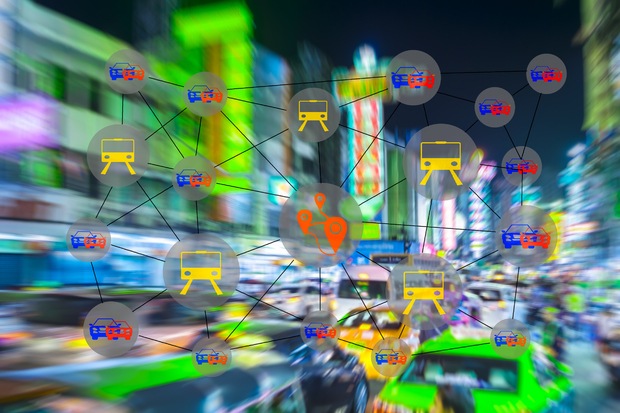How we work, how we earn and the skills required are taking on a shared purpose.
Shifting from hyper-consumption to collaboration consumption has given a renewed belief in the value of reputation, community, and shared access.
Driving force multipliers
How are organizations going to learn? Organizations – both big and small – will need to adapt to new challenges to survive.
- Redefinition of social capital: personal, not corporate brands are determining business relationships
- Redistribution markets: unwanted or underused goods resold
- Collaborative lifestyles: non-product assets such as space, skills, and money are exchanged and traded in new ways
- Product service systems: pay to access a product or service without ownership
Redistribution markets, collaborative lifestyles, and product service systems have spurred the rise of consumptive collaboration – new shared reinvested through technology. Traditional sharing, bartering, lending, trading, renting, gifting, and swapping redefined through technology and peer communities bloomed into the sharing economy.
This collaborative economy places value on a combination of reputation, community, and shared access. Underutilized assets and resources are offering alternatives making space for on-demand platforms that reach critical mass based on the efficiency of crowds and the trust of communities.
The competing forces and evolving priorities have created a new world born on the back of business fragmentation feeding off the influence of social environments. Here technology breakthroughs are the norm and resource scarcity is a driver in the global shift of power.

The billion-dollar club
Today every industry is getting involved in the sharing economy. Today companies that make up hospitality (Feastly, LeftoverSwap), transportation (Lyft, Zipcar), consumer goods (Etsy, Poshmark), entertainment (SoundCloud,Pandora), healthcare (MedZed, Heal), logistics (Instacart, Uber Rush) and odd jobs (Fiverr, Upwork) all contribute to form the sharing economy. Given the surge of sharing companies, it might not be surprising that Uber’s valuation of USD $62.5 billion is 2.43 times Southwest Airlines at USD $25.7 billion and T. Rowe’s latest valuation lifts Airbnb’s assessment to USD $25.5 billion at 1.48 times the Marriott International at USD $17.2 billion.
The collaborative economy is here to stay. HBR published a great piece titled, What Customer Want from the Collaborative Economy, that stated, “We now have research to show that companies need to embrace the core innovations of the collaborative economy if they want to thrive in the era of Kickstarter, Uber and TaskRabbit.” Maybe we’ll all be relegated into three simple worlds: Orange (small is beautiful), Green (companies care), or Blue (corporate is king) as suggested by PwC in The future of work: a journey to 2022 report. The future of work will involve companies that innovate around their core values.
The future of work involves learning (Udacity, Chegg), municipal (Musketeer,MuniRent), money (bitcoin, CircleUp), goods (yerdle, shapeways), health and fitness (VINT, Medicast), space (HomeAway, ShareDesk), food (VixEat, Blue Apron), utilities (vandebron, fon), transportation (Ola Share, DriveNow), services (CloudPeeps, Fiverr), logistics (nimber, deliv), and corporate (warpit, TwoGo). The makers, co-creators, crowd funders, peers, and companies that are successful all empower people. The sharing economies are creating partnerships between traditional incumbents and bleeding edge tech companies.
Healthcare plunges into the sharing economy
Healthcare companies are launching a flurry of interaction applications to capture the attention of patients and their loved ones.
- Ease delivers medical marijuana delivered in minutes or less. Think of a slick decision support tool for medical marijuana. Ease offers a high quality, lab-test menu, with fast and convenient delivery with technology that provides an experience for patients that is safer than the alternatives.
- Helparound addresses the daily struggle of chronic patients on caregivers. Part of helparound is Diabetes Helpers, is a help network on mobile and desktop where people help each other navigate life with diabetes. People with type 1, type 2 diabetes, gestational diabetes and their caregivers answer each other about the symptoms of diabetes, how to lower their a1c, and learn more about diabetes diet and management.
- Stat provides on-demand doctors, medical care, medical transport and companionship. Stat is healthcare on-demand and with a simple push of a button, patients can reach a doctor, CNA, HHA, or a medical transport in minutes for themselves or cared for loved ones.
- Popexpert, gives users an opportunity to learn life and work skills directly from top experts to be happier, healthier, and more productive. From getting fit to staying healthy popexperts, has the latest in life, work, and play.
- Medicast, is helping hospitals and health systems bring back the house call. This new platform offers care delivery for the on-demand age. Medicast helps hospitals and health systems modernize their care delivery networks with sophisticated, easy-to-use technology that has been designed in collaboration with patients and physicians.
The sharing economy is bringing people together. In our small and beautifully connected world – reputation, community, and shared access matters.
